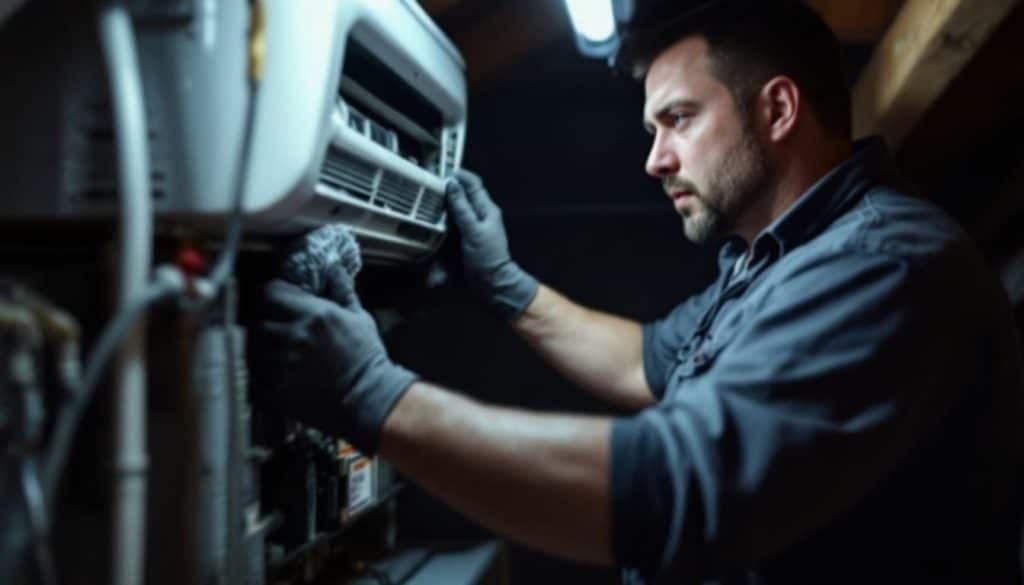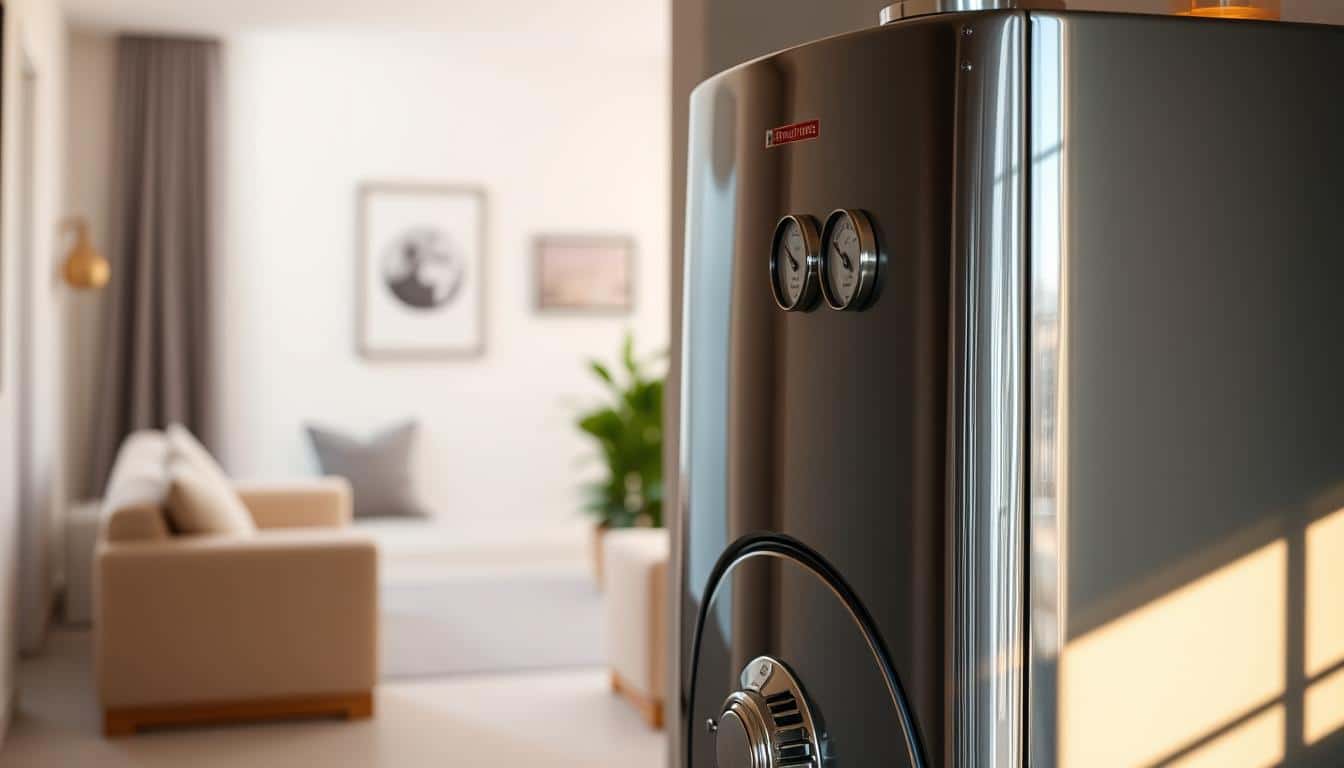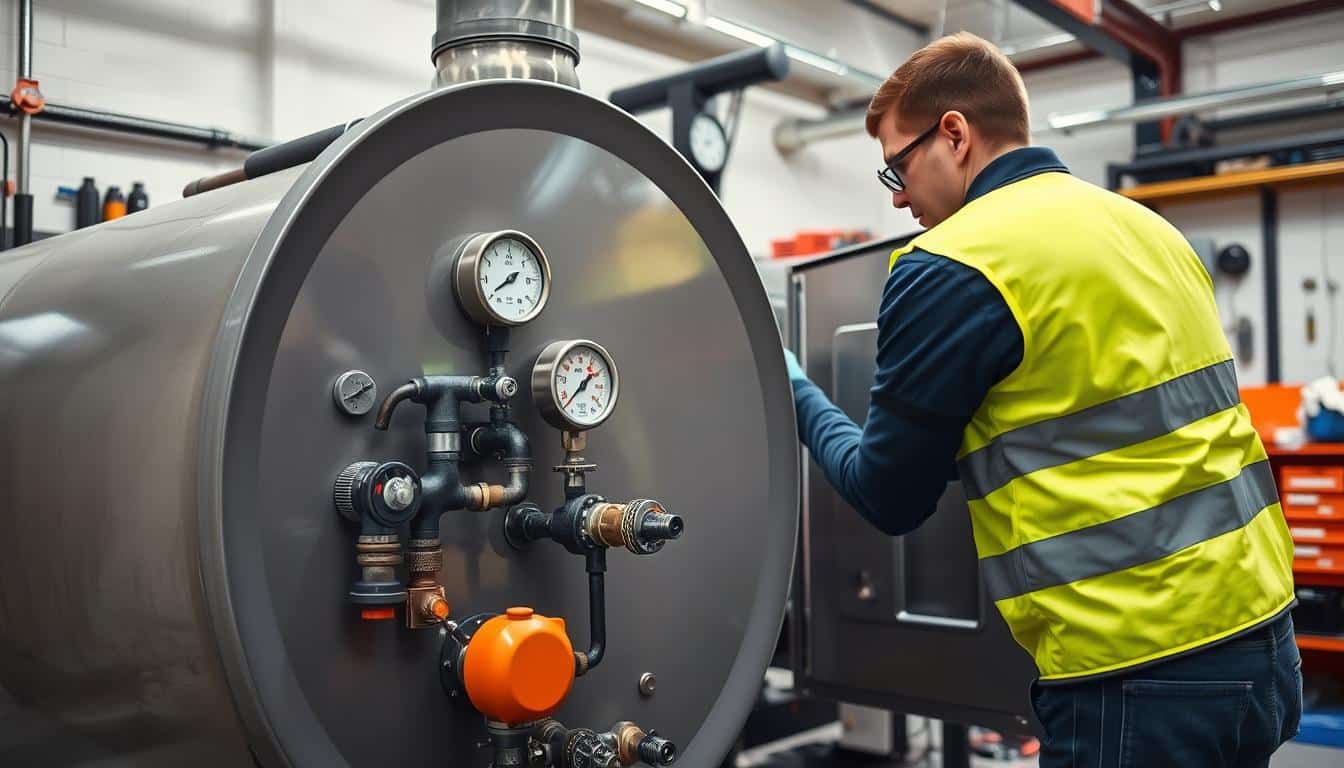Table of Contents
Ever found yourself asking, What are the Common Signs of HVAC Problems? this is a crucial question, as issues like inconsistent temperatures, strange noises, weak airflow, and rising energy bills often indicate that the system needs attention or repair.
Diving into this issue made us think and find some useful tips.
We’re excited to share how to catch HVAC glitches before they get worse. From loud noises to sudden energy bill hikes, we’ve got you covered.
We’ll show you simple steps to spot trouble and what to do next. Ready for a cozy future without surprises? Stay tuned for advice that really makes a difference.
Key Takeaways
- Watch for signs like weird noises, less air flow, or strange smells from your HVAC. These can mean it’s not working right.
- Check and change your air filters often. Dirty filters make your system work harder and cost you more money.
- If rooms in your house feel too hot or cold, this could point to a problem with your HVAC. It might be uneven air spreading or leaks in ducts.
- Old HVAC units (10+ years) often need more repairs. They can use up too much energy and raise your bills.
- Doing regular checks on parts like the thermostat, pilot light, and coils helps catch issues early. This saves time and stops bigger problems later on.
Common Signs of HVAC Problems
Common signs of HVAC problems can be easy to spot if we pay attention. We should watch for changes in air flow, strange sounds, and any bad smells coming from the unit.
Age of HVAC unit (10+ years old)
HVAC units last about 10 to 15 years. If our system is older than that, we may face problems. Parts wear out over time. This can lead to air conditioning problems or heating and cooling issues.
We should keep an eye on the age of our HVAC unit.
An old HVAC unit often needs repairs. Frequent repair bills can add up quickly. Rising energy bills may signal that our unit is not working efficiently anymore. Knowing the age of our HVAC system helps us decide if it’s time for a replacement or some needed maintenance services.
Blowing warm air or not blowing cool air
A common sign of HVAC problems is when the system blows warm air instead of cool air. This can leave us feeling uncomfortable, especialy during hot days. Warm air might mean that our air conditioning unit has a problem.
It could be low refrigerant levels or a broken compressor.
Ignoring these signs can lead to costly repair bills later on. We should check our HVAC unit regularly for any issues like this. Ensuring proper airflow and temperature is key to keeping our space comfortable and energy-efficient.
Recognizing signs of air conditioning problems early helps prevent larger HVAC system troubles down the road.
Poor or weak air flow
Poor or weak air flow is a key sign of HVAC problems. We may notice that certain rooms feel hotter or cooler than others. This uneven temperature can make our space uncomfortable. Blocked vents often cause this issue.
Dust and dirt can build up, blocking the air from flowing freely.
We should regularly check and clean our air filters to improve airflow. Dirty filters restrict how much air can pass through the system. If we find that cleaning doesn’t help, it might be time for HVAC maintenance services.
Quick action on weak airflow can save us from bigger issues later on.
Noisy unit
A noisy HVAC unit can signal trouble. Strange sounds like banging, rattling, or hissing may mean something is wrong. We should not ignore these noises. They can indicate loose parts or issues with the motor.
If we hear any odd sounds, it’s time to check our system.
Ignoring a noisy unit often leads to bigger problems later on. We watch for loud or unusual noises as signs of HVAC issues. Quick action can help us avoid costly air conditioning repairs and keep our homes comfortable.
Increased humidity in the home
Increased humidity in the home is a clear sign of HVAC problems. High moisture levels can make us feel uncomfortable. It can cause mold and mildew too. We need to watch for this issue closely.
A well-working air conditioning system helps keep our homes dry. If we notice higher humidity, it may mean our AC cannot cool properly. This could be due to poor airflow or a malfunctioning unit.
Let’s take action and check on our HVAC units frequently to prevent these common HVAC issues from becoming bigger problems.
Foul odors
Foul odors from our HVAC unit signal that something may be wrong. Musty smells often mean there is mold or mildew in the system. A burning smell can indicate an electrical problem or that parts are overheating.
These odors should not be ignored, as they point to potential HVAC problems.
Regular air conditioner maintenance helps prevent these issues. We must inspect filters and ducts for dirt and debris. Keeping our systems clean reduces odor risks. If we notice any unusual smells, it’s best to contact HVAC repair services right away like from Raye-Van Enterprises Inc. for help with troubleshooting HVAC problems before they worsen and hiring them means you get fast help. They make sure the job is done right, giving you peace of mind.
Leaks
Leaks can be a big problem for HVAC systems. We need to check for any water or refrigerant leaks from the unit. A leak can lead to higher energy bills and more repair costs. If we notice damp spots on walls or ceilings, that’s a sign something isn’t right.
We should also inspect any visible pipes and joints for moisture. Fixing leaks early can save us money down the road. Regular checks help prevent bigger issues in our HVAC system problems later on.
Keeping an eye out for these signs will aid us in maintaining our units better.
Frequent or short cycling
Frequent or short cycling is a common sign of HVAC problems. This means the system turns on and off too often. It may run for only a few minutes before stopping again. We should pay attention to this issue.
Short cycling can waste energy and raise our bills. It happens for many reasons, like a faulty thermostat or dirty filters.
We need to check our HVAC unit if we notice this sign. Testing the thermostat is important. A broken part might cause the cycle problem too. Regular maintenance can help stop these issues from getting worse.
By keeping up with HVAC repairs, we save money in the long run and keep our home comfortable.
Rising energy bills
Rising energy bills can be a big sign of HVAC problems. If our heating or cooling system is not working well, it uses more power. We may notice higher costs on our monthly utility bills.
This change often means that our HVAC unit has issues. It could be old, dirty, or even leaking air.
Keeping an eye on these rising costs helps us catch problems early. Regular checks and maintenance can make a difference. By identifying HVAC unit malfunctions now, we save money later on repairs and energy use.
Frequent repair bills
Frequent repair bills can signal HVAC unit problems. If we find ourselves calling for repairs often, it may mean our system is not running well. Older units usually need more care and attention.
An HVAC unit over ten years old might struggle to work efficiently.
We should track these costs closely. If expenses rise suddenly, it is time to investigate further. Ignoring high repair bills could lead to larger issues down the line. Regular maintenance helps us avoid these surprises and keeps our systems running smoothly.
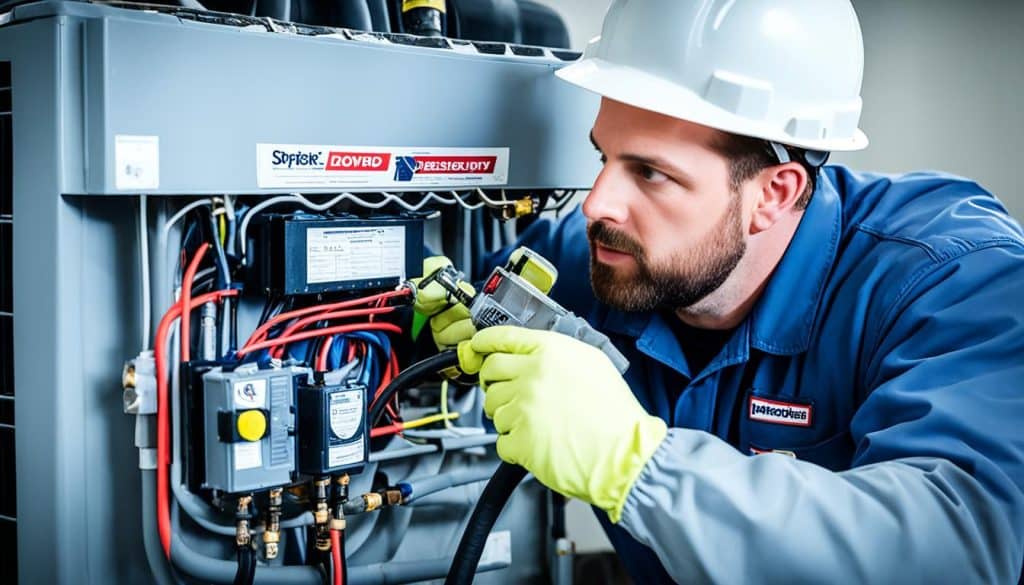
How to Identify HVAC Problems
We can spot HVAC issues by checking a few key areas in our homes. First, we should look at air filters and change them if they’re dirty. It’s also smart to check the ductwork for dirt.
Testing the pilot light and ignition is also helpful. We need to see if the thermostat works well.
Next, we should inspect for tripped breakers or blown fuses. Cleaning condenser and evaporator coils will help keep things running well, too. Watching out for water leaks from the unit is important as well.
Checking room temperatures to see if they are even throughout our home is a good idea. Testing for negative pressure can reveal more problems, and inspecting leaky ducts may show hidden issues.
We hope you stay tuned! There’s more valuable information coming up on how to keep your HVAC system in good shape.
Inspect and change air filters
Air filters play a big role in our HVAC system. Dirty filters can block airflow. This makes the unit work harder, wasting energy and increasing bills.
Changing them every month is a smart choice.
A clean filter helps the system run well. It also improves air quality in our homes or businesses. If we notice dust build-up or if it’s hard to see light through the filter, it’s time for a change.
By inspecting and changing air filters, we help avoid common HVAC problems and keep everything working smoothly.
Check ductwork for dirt and debris
We should check our ductwork for dirt and debris. Dirty ducts can block airflow. This leads to weak air circulation in our homes or businesses.
Dust and allergens may also spread through the air, affecting our health. Cleaning the ducts is part of HVAC troubleshooting. We can improve efficiency by keeping them clean.
Regular inspections help us catch problems early before they become costly repairs. Healthy ductwork supports a well-functioning HVAC system and keeps energy costs down.
Test pilot light and ignition
Testing the pilot light and ignition is key for our HVAC system. A working pilot light means the furnace can heat our space. If it’s out, we must relight it correctly. We should ensure that all steps are clear and safe.
Checking ignition is also vital. Many units now have electronic ignition instead of a pilot light. We need to test this as well. A faulty ignition can stop the heating process altogether.
Identifying HVAC system issues early helps us avoid bigger problems later on, like costly repairs or even an HVAC system replacement.
Check thermostat functionality
We need to check the thermostat’s functionality. This is a key step in HVAC system troubleshooting. First, we should make sure it is set to the right temperature. If it shows the correct setting but does not respond, that could indicate a problem.
Next, we can look for any loose wires or connections at the thermostat. Sometimes, replacing old batteries helps too. A faulty thermostat may lead to signs of heating and cooling problems like uneven temperatures in our rooms.
Keeping an eye on this can save us from frequent repair bills down the road.
Inspect for any tripped breakers or blown fuses
We should inspect for any tripped breakers or blown fuses. Sometimes, our HVAC system may stop working due to these issues. A tripped breaker can cut power to the unit. This means it won’t run properly or at all.
Checking the electrical panel is a good step in finding HVAC problems. If we find a tripped breaker, resetting it might fix the issue. Blown fuses also need replacement to restore function.
Keeping an eye on these parts helps us avoid bigger repairs down the road with our air conditioning system repairs and HVAC maintenance issues.
Clean condenser and evaporator coils
Cleaning the condenser and evaporator coils is key for our HVAC system. Dirty coils make our unit work harder. This can cause HVAC malfunction.
We should clean these coils at least once a year.
To clean them, first turn off the power. Then, remove dirt or debris from the outside and inside units. A soft brush or vacuum works well.
Clear coils improve airflow and efficiency in our homes or businesses. They also help reduce energy bills over time.
Look for any water leaks from the unit
We need to check for any water leaks from the HVAC unit. Water leaks can cause big problems. They may lead to mold and damage our home or building.
Look near the unit for signs of water pooling.
If we spot puddles, it’s a sign that something is wrong.
Inspecting the drain pan is also important. If it’s full of water, it could be clogged or broken. A proper flow helps prevent leaks too. Keeping an eye on these issues can save us time and money in repairs later on.
Spotting leaks early means we can fix them before they worsen, making it important to know what are the common signs of HVAC problems and how to identify them.
Check for uneven room temperatures
We can often spot HVAC problems by checking for uneven room temperatures. If one room feels much hotter or colder than others, there may be an issue. Cold air might not reach certain areas due to blocked vents or dirty ducts.
To find the problem, we should walk through every room. Pay attention to how each space feels. Uneven heating and cooling can also indicate a larger issue with the HVAC system itself.
It is important to fix these problems sooner to keep our home comfortable and efficient.
Test for negative pressure
Testing for negative pressure helps us find hidden HVAC problems. Negative pressure occurs when air is sucked out of the home instead of being pushed in. This can lead to poor air quality and higher energy bills.
To test for negative pressure, close all windows and doors. Then, turn on exhaust fans. If we feel air coming into the house from outside, that means there is negative pressure present.
We should fix this issue to keep our HVAC system working efficiently and maintain a comfortable environment.
Inspect for leaky ducts
We should inspect for leaky ducts. Leaks can cause the air to escape before it reaches us. This means our HVAC system must work harder. Poor air flow happens, and we feel less comfort.
We may also see higher energy bills.
To find leaks, check around vents and ducts for any gaps or holes. Sealing these areas helps save energy and improve airflow. Keeping our home comfortable is key to enjoying our space.
Checking for leaks is important in spotting common signs of HVAC problems early on.
Preventing Common HVAC Problems
We can keep our HVAC units running well with regular care. Simple tasks like cleaning and checking filters make a big difference.
Regular maintenance and servicing
Regular maintenance and servicing keep our HVAC systems running well. We should check our units at least twice a year. This helps catch small issues before they become big problems.
Cleaning air filters is part of this process. Dirty filters can make airflow weaker and cause our system to work harder. Keeping outdoor units clean also helps with efficiency. Regular checks on ductwork, coils, and other parts may prevent costly repairs later on.
Taking care of these tasks now saves us money in the long run.
Keep outdoor units clean
It’s key to keep outdoor units clean for their best performance. Dirt and debris can block airflow and make the unit work harder. This results in higher energy bills. We should regularly check the area around our HVAC units.
Removing leaves, grass clippings, and dirt helps keep them running smoothly.
Cleaning the coils is also important. Dirty coils reduce efficiency and cause breakdowns. We can gently wash them with water or use a soft brush to remove dust. A clean outdoor unit ensures we stay comfortable in our homes or businesses while avoiding costly repairs down the line.
Let’s take these steps seriously to prevent common signs of HVAC problems.
Watch for leaks
We should all watch for leaks in our HVAC systems. Leaks can lead to bigger problems over time. They may cause poor airflow or higher energy costs. Checking for water around the unit is essential.
If we notice any moisture, we must act fast.
Finding leaks early helps us save money and stay comfortable. We can reduce humidity levels inside our homes too. Regular checks help us spot issues before they get worse. Staying alert can prevent costly repairs later on.
Change air filters regularly
Changing air filters regularly helps keep our HVAC systems running well. Dirty filters can block airflow and make the unit work harder. This adds to energy costs and wear on the system.
We should check the filters every month, specially during heavy use seasons. When they look dirty, it’s time for a change.
Clean filters make sure we get fresh air in our homes or businesses. They also help reduce dust and allergens. Regularly changing air filters can lead to better efficiency and comfort indoors.
It is easy to forget this task, but it’s very important for a healthy environment and lower bills!
Keep air vents clear
We need to keep air vents clear. Blocked vents can cause our HVAC system to work harder. This leads to higher energy bills and less comfort in our homes or offices. Dust, furniture, or toys can block these vents easily.
Regularly checking and cleaning the area around our air vents is essential. We should make sure nothing is hiding them. Clear airflow helps our units run better and last longer. It also prevents common signs of HVAC problems from showing up in the first place.
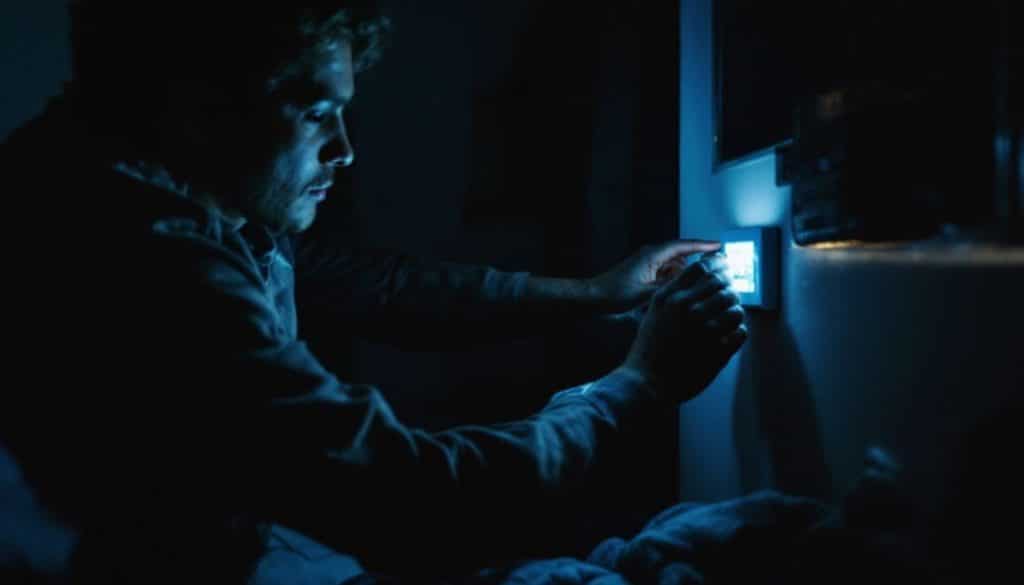
Conclusion
We have discussed the common signs of HVAC problems. Recognizing these signs can save us time and money. Simple checks, like changing filters, really help. Keeping our systems clean is also easy and makes a big difference.
Regular care stops many issues before they start. Let’s take action today to improve our home or business comfort!
FAQs
What are the Common Signs of HVAC Problems?
Common signs of HVAC problems include unusual noises, poor airflow, foul smells, and frequent cycling.
How can I identify these common signs of HVAC problems?
You can identify these issues by paying attention to changes in your system’s performance. Look out for strange sounds or unexpected increases in energy bills.
Do all HVAC problems have noticeable signs?
Not all HVAC problems have obvious signs. Some issues may only be detected during routine maintenance checks.
What should I do when I notice these common signs of HVAC problems?
If you notice any common signs of HVAC problems, it’s best to contact a professional. Call Raye-Van Enterprises Inc. at (604) 530-0063 for a thorough inspection and repair. They ensure the job is done right, giving you peace of mind.

